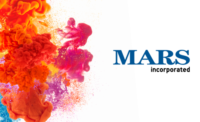One of the most important things about a pack of Skittles is that it gives you a chance to “Taste the Rainbow.” Not taste the yellow. Or taste the green. No — the whole rainbow.
But guaranteeing that each pack has the right amount of each color to create a full rainbow can be a challenge. And Mars has answered that challenge with artificial intelligence.
The company uses AI technology to measure the color blends of Skittle packs, helping to ensure consistent quality and giving consumers the chance to taste the whole rainbow.
That’s according to Mars’ Maria Velissariou, the company’s global corporate research & development v.p. and chief science officer. Velissariou shared that information, along with other AI-related insights, as a one of the recent guests on the U.S. Food and Drug Administration’s TechTalk Podcast, which focuses on food safety.
Velissariou said AI is “increasingly embedded in the end-to-end supply chains in agriculture and food.”
In fact, the company has incorporated AI into more than 250 projects and capabilities, and Velissariou explained how Mars views the cutting-edge technology.
“It is indeed a key enabler to unlock great speed and volume,” she said. “We also need to have a willingness to experiment quickly. Stop what doesn’t work and scale fast what does. And we need to push through the hype to understand what problem we’re solving. Not every problem requires an AI solution, and that is why it is critical in the process to employ a user-centric approach.”
So what does AI look like in practice at Mars? The company hopes to use the technology to free employees from repetitive tasks, such as sorting Skittles. Staff can then focus on more creative work, moving into deeper analysis and judgment, Velissariou said.
AI can also help enhance partnerships between the company’s various teams, including research and development, as well as the digital technologies, manufacturing, procurement, sales and more.
“[So] we can use AI to organize huge amounts of data coming from raw materials and manufacturing processes, so our food safety experts can apply their domain-specific expertise to interpret the data,” she explained.
Already Mars uses an AI platform called Mission Control, which analyzes performance metrics, performs comparative analysis and produces previously impossible insights — all of which lead to ensuring high quality and food safety.
“And we are focusing on the four categories of exploration: raw materials…quality analytics, finished product and horizon scanning and external listening.”
How AI shifts workforce needs
Velissariou acknowledged that shifting to AI could alter the company’s workforce needs, adding that some employees will need to upskill to an extent.
“Our associates with deep expertise in traditional sciences like microbiology and toxicology may need to become fluent in the basics of AI so that they can understand how AI generates value. They don't need to become AI engineers,” Velissariou explained.
On the other hand, AI engineers need to understand the basics of food science and technology so that they can collaborate with their counterparts.
“Food safety is a great example of where AI can assist human judgment but cannot replace it,” Velissariou said. “Nor is AI a substitute for good behaviors and practices, which are cornerstones of culture. These need to be practiced and modeled every day and consistently.”
Mars also works to solicit buy-in for new AI advances. For example, they ask senior leaders to sponsor the change coming from digitalization like predictive and prescriptive analytics.
The company also has implemented reverse mentoring. The program gives senior leaders the opportunity to be coached by internal digital experts.
And it all ties together.
“This is an effective way to help [senior leaders] play the role of sponsors in this digital transformation journey,” Velissariou said.
Mars also held its first Mars Artificial Intelligence Festival in 2020. The week-long all-virtual immersive experience was meant to help educate staff while also demystifying and celebrating AI among all Mars associates.
“It was actually a great opportunity to showcase how prevalent AI already is within the organization,” she said.
To listen to the full episode of the FDA’s podcast and to read a transcript, visit the FDA website.







